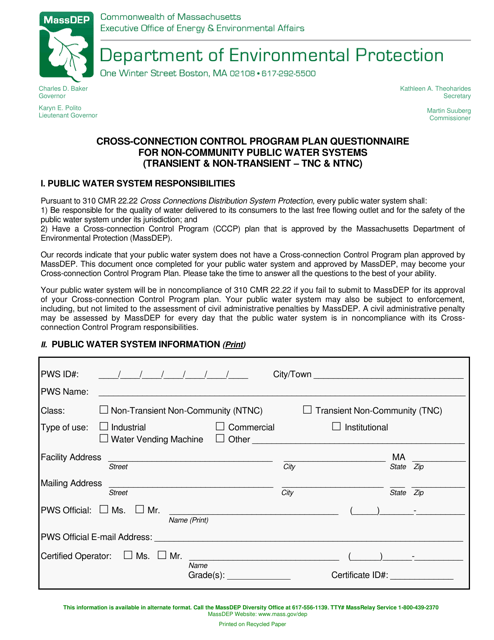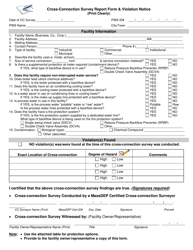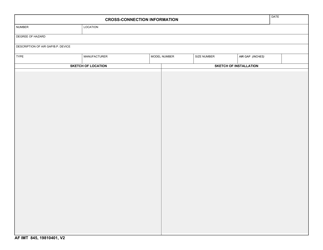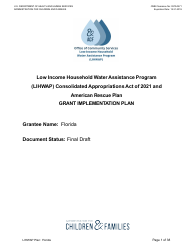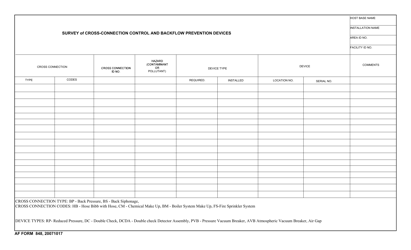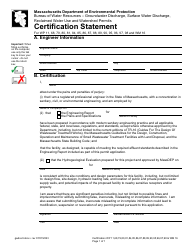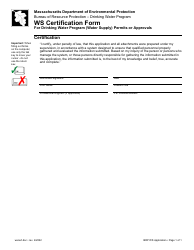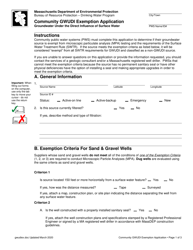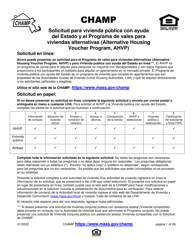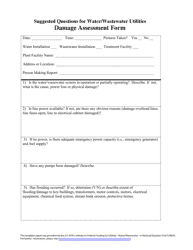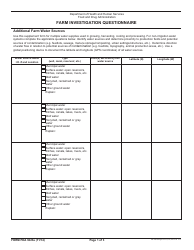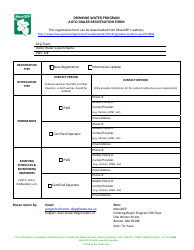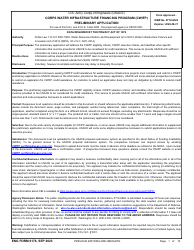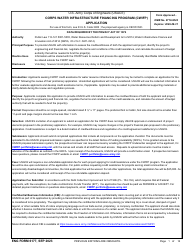Cross-connection Control Program Plan Questionnaire for Non-community Public Water Systems (Transient & Non-transient - Tnc & Ntnc) - Massachusetts
Cross-connection Control Public Water Systems (Transient & Non-transient - Tnc & Ntnc) is a legal document that was released by the Massachusetts Department of Environmental Protection - a government authority operating within Massachusetts.
FAQ
Q: What is the purpose of the Cross-connection Control Program Plan Questionnaire?
A: The purpose is to ensure the safety and quality of the public water supply for non-community public water systems in Massachusetts.
Q: Who needs to complete the Cross-connection Control Program Plan Questionnaire?
A: Non-community public water systems in Massachusetts, both transient and non-transient, are required to complete the questionnaire.
Q: What is a non-community public water system?
A: A non-community public water system is a water system that serves at least 25 people per day for at least 60 days in a year, but does not serve the same people year-round.
Q: What is the difference between transient and non-transient non-community public water systems?
A: Transient non-community public water systems serve a population that is constantly changing, such as campgrounds or restaurants. Non-transient non-community public water systems serve a specific population, such as schools or factories.
Q: What is a cross-connection?
A: A cross-connection is a physical connection between the public water supply and a potential source of contamination, such as a plumbing system or non-potable water source.
Q: Why is cross-connection control important?
A: Cross-connection control is important to prevent the backflow of contaminants into the public water supply, which can pose a health risk to consumers.
Q: What is the purpose of the questionnaire?
A: The questionnaire helps identify potential cross-connections in the water system and ensures that appropriate control mechanisms are in place.
Q: What information is required in the Cross-connection Control Program Plan Questionnaire?
A: The questionnaire asks for information on the water system's sources of water, distribution system, potential cross-connections, and existing cross-connection control measures.
Q: What happens after completing the questionnaire?
A: After completing the questionnaire, the water system may be required to develop and implement a cross-connection control program to address any identified risks.
Q: Who enforces the Cross-connection Control Program Plan Questionnaire requirements?
A: The Massachusetts Department of Environmental Protection (MassDEP) enforces the requirements for non-community public water systems in Massachusetts.
Form Details:
- Released on September 23, 2021;
- The latest edition currently provided by the Massachusetts Department of Environmental Protection;
- Ready to use and print;
- Easy to customize;
- Compatible with most PDF-viewing applications;
- Fill out the form in our online filing application.
Download a printable version of the form by clicking the link below or browse more documents and templates provided by the Massachusetts Department of Environmental Protection.
